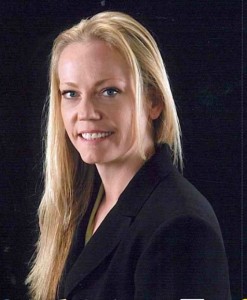by Angela Staples, General Counsel, Permian Basin Petroleum Association.
Texas Supreme Court Update:
When does trespass occur below ground? And how actionable would such trespass be? These are questions that still have no clear answers.
In the March Issue of PBOG, I discussed a case upon which the Texas Supreme Court would be hearing oral argument, titled FPL Farming, Ltd. v. Environmental Processing Systems, L.C. To quickly review, the case on appeal centered upon the Ninth Court of Appeals of Texas’ holding that an operator was immune from trespass liability for the injection well because the Texas Commission on Environmental Quality (TCEQ) properly issued a permit under the “Injection Well Act” found in the Texas Water Code. The Supreme Court recently issued its opinion on the matter, and, not surprisingly, reversed the Ninth Court of Appeal’s decision, stating that the Injection Well Act specifically provides that a holder of a permit issued by the TCEQ is not immune from civil liability.
The Texas Supreme Court stated that its jurisdiction arose partly due to the conflicting holdings “among several Texas courts of appeals over whether state-issued permits immunize the permit holder from liability.” The conflict was due to this particular holding, which was in opposition to many previous holdings that provided that even a properly issued permit does not shield the permit holder from liability.[1] One Court “compared agency permits to drivers’ licenses: a driver’s license permits the driver to drive legally, but not on his neighbor’s lawn.”
In this case, the court of appeals held that, “under the common law, when a state agency has authorized deep subsurface injections, no trespass occurs when fluids that were injected at deep levels are then alleged to have later migrated at those deep levels into the deep subsurface of nearby tracts.” The Texas Supreme Court stated that, “under the court of appeals’ opinion, a permit holder would be immunized from trespass liability by virtue of receiving a permit.” This, they stated, was wholly inconsistent with its general view of the legal effect of an agency’s permitting process and the precedent regarding court review of agency actions. As such, it reversed the decision of the Ninth Court of Appeals, and remanded the case for the court to consider the issues related to trespass.
As I set out in the previous article, though, trespass of this sort is difficult, if not impossible, to prove. As in this case, the Texas Supreme Court, in 2008, did not decide whether or not an action for subsurface trespass action existed.[2] What they did say, however, was how unlikely it would be for such a cause of action to find success:
“Had Coastal [the alleged trespasser] caused something like proppants to be deposited on the surface of [plaintiff’s land], it would be liable for trespass, and from the common law maxim that land ownership extends to the sky above and the earth’s center below, one might extrapolate that the same rule should apply two miles below the surface. But that maxim… “has no place in the modern world.” Wheeling an airplane across the surface of one’s property without permission is a trespass; flying the plane through the airspace two miles above the property is not. Lord Coke, who pronounced the maxim, did not consider the possibility of airplanes. But neither did he imagine oil wells. The law of trespass need no more be the same two miles below the surface than two miles above.”
Despite the indication that the Texas Supreme Court would not uphold a finding of damages for subsurface trespass, this was not the issue it decided. That was left up to the lower courts. As a result, while the Court has left the door open to such damages, we will have to wait and see whether subsurface trespass will ever be a viable legal theory in Texas.
[1] FPL Farming, Ltd. v. Tex. Nat. Res. Conservation Comm’n, 2003 WL 247183 at *1–2; Berkley v. R.R. Comm’n of Tex., 282 S.W.3d 240, 243 (Tex.App.—Amarillo 2009)
2 Coastal Oil & Gas Corp., et al. v. Garza, et al., 268 S.W.3d 1 (Tex. 2008).










